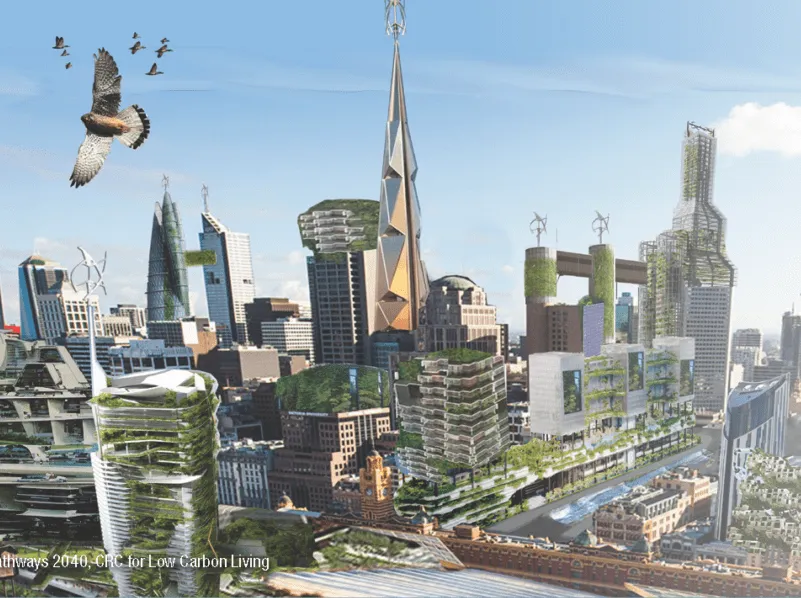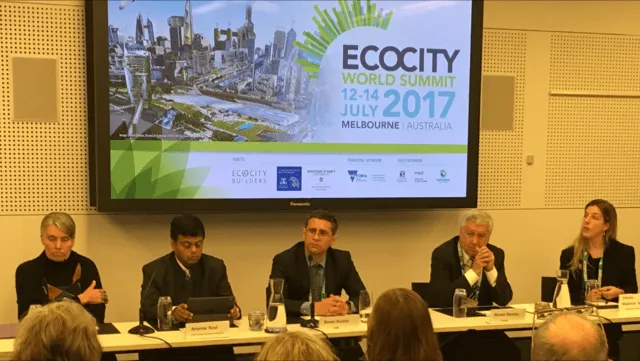Short-circuiting a superpower, city by city

The US is withdrawing from the Paris climate accord, but there are reassuring signs of action at a sub-nation scale.

At the opening of the Ecocity World Summit being held in Melbourne this week, I heard a lot about the many environmental initiatives my home city of Melbourne is taking. I was also pleased to hear the action being taken to address climate change at a regional level by the Government of my State, Victoria. These activities at city and state level made the lack of action being taken at the national level by my country, Australia, crystal clear.
The Hon Lily D’Ambrosio MP, Victorian Government Minister for Energy, Environment and Climate Change, told delegates that it is now law in Victoria to have zero net emissions by 2050. Her comments were followed by Melbourne’s Deputy Lord Mayor, Councillor Arron Wood, who told us that cities and states will do the heavy lifting to meet national greenhouse gas targets. And during the day’s conference presentations, the message was clear: the role of cities and sub-nation governments such as states has become increasingly important in the face of country-level inaction and scepticism about climate change.
During the Ecocity World Summit media conference (which had the media-friendly title of ‘Driving climate action in a Trump world – how cities can circumvent a superpower’), Kevin Austin, Deputy CEO of C40, told gathered media that cities are a cause of climate change due to dense populations and the large proportion of global emissions they cause, and hence also need to be part of the solution. C40 is a network of 91 of the world’s cities that have committed to urgent action on climate change.
‘All cities need to be carbon neutral by 2050 or earlier,’ he said. Referring to US President Trump’s statement, ‘I was elected to represent the citizens of Pittsburgh, not Paris’, Kevin said we need to abide by the Paris accord (to reduce global emissions to a level that would keep global warming to below 2 degrees Celsius), to do right by the citizens of both Pittsburgh and Paris, and the citizens of the world. ‘Cities can play a part on the national level, and also on the international level.’ (Pittsburgh’s Mayor, Bill Peduto, said that he was outraged at Trump’s statement, rejoindering that ‘It’s up to cities — not the federal government — to ensure carbon emission guidelines are being followed’.)
Aromar Revi, Director of the Indian Institute for Human Settlements, told the media that local governments are the most critical force to keep the world’s warming close to 2 degrees. He said that a territorial approach – that is, action by cities and states – is very important. ‘Australia is a world leader in adaptation, and has been for a long time,’ he said. ‘The world is likely to overshoot the 1.5 degree target, so we need to prepare for adaptation now because some of this stuff is unfortunately going to happen.’
As Ronan Dantec, Senator for the Loire-Atlantique Region in France, said, ‘Now we are in a time of action.’
Author:
Date Posted:
July 12, 2017
